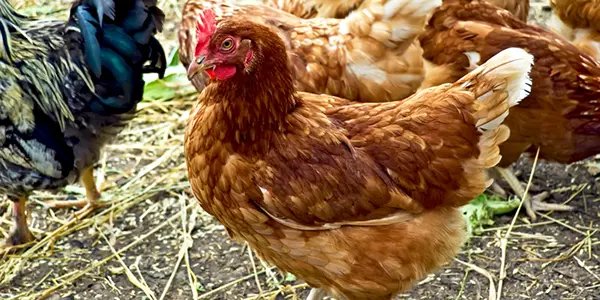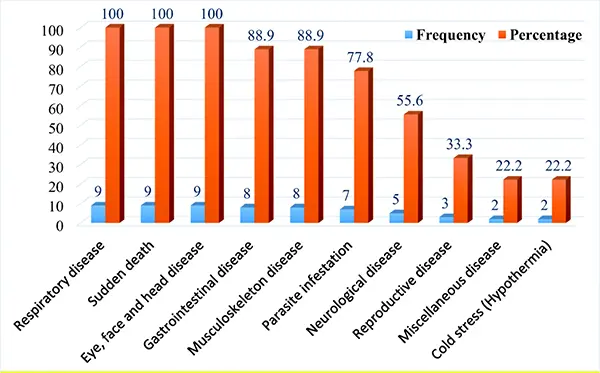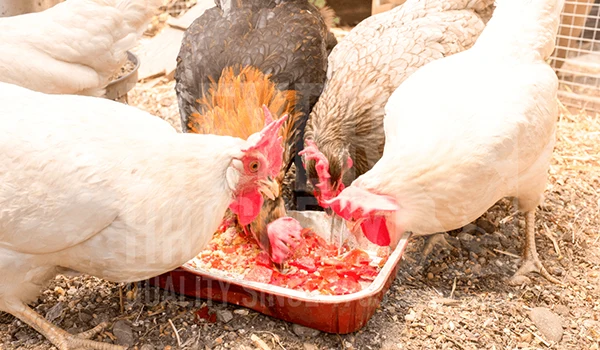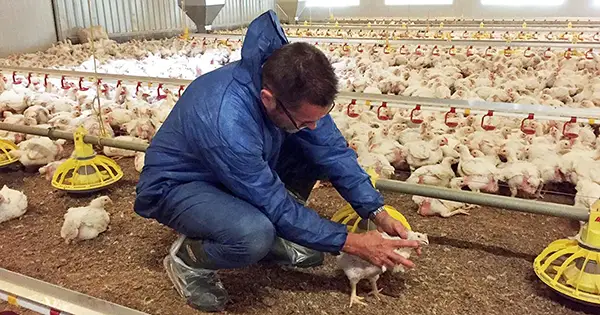My grandfather used to own a poultry farm, and we had different birds like chickens, ducks, and turkeys. I learned a lot of things about them, and one of them was that there are several health issues that chickens face. So, how you can handle it?
According to a case study, small-scale farmers suffer great loss because of such diseases as their livelihood both food and money depends on the flocks. This is why it should be taken seriously. (ResearchGate: Common Chicken Diseases in Smallholder Farming: A Review).
This is why I’m writing this article, where I’ll talk about common health issues in chickens and how to prevent them. If you own such birds or know anyone who does, then this is an essential write-up.
Several health problems are considered usual among poultries. They might seem like they are tough birds, but they are not. They can become sick easily if they aren’t taken care of properly. So, let’s take a look at the common issues that they face.
Respiratory infections are more frequent than you might think. Symptoms include watery eyes, wheezing, or nasal discharge. If it gets worse, your chicken won’t be able to give any eggs.
It is usually caused because of overcrowding, being near any other affected bird, or poor ventilation. This shouldn’t be avoided, it can even be considered chicken cold, but it spreads quickly.

They aren’t liked by anyone, but they can be anywhere. If your chicken gets infected by any of it such as lice mites or fleas it will make them uncomfortable by causing them feather loss, itching, and anemia if it didn’t get treated on time.
Once that I mentioned will cause external damage. But there are internal parasites as well, like tapeworms or roundworms. You won’t be able to spot them easily and often cause problems to chickens like pale combs, fewer eggs, and weight loss.
If your hen is unable to lay eggs, then this might be the cause. But why does it happen? There can be different reasons like dehydration, stress, and poor diet. The egg gets stacked into its reproductive part.
Look for symptoms of lethargy, swollen abdomen, and straining. Yes, it’s not fatal, but that doesn’t mean you won’t treat it accordingly. In the graph below, you can see the occurrence of all the frequent diseases.

Bumblefoot is an infection that can be caused because of any cut or scrape in the foot. This results in the chicken favoring one leg over another, and what’s worse is it can spread to the whole body.
Look for signs of look-alike redness, scab, or swelling. Humans can also catch it indirectly from birds, so be alert. Treat it as soon as possible as it is painful for the creature and nobody needs to suffer.
Everyone needs a balanced diet because without it our body wouldn’t function properly. The same goes for the flock, if they aren’t getting proper nutrients you’ll see effects such as brittle feathers, slow growth, change in behavior, and weak eggshells. Then don’t think about money and get them the best of the best food.
Now that you know all the common health issues, how about I tell you how you can keep your hens healthy and fit? So here are a few things that you can do:

If your folks are eating a balanced diet, they won’t catch any disease or anything. Opt for good commercial feed as it will help them grow and lay good eggs. Give them a combined food consisting of calcium such as oyster shells and healthy treats.
If you have scraps like leftover vegetable peels or rice, give them to them. However, avoid giving processed, sweet, and salty items.
A neat and clean place keeps most of the maladies away. Chicken coops are no exceptions. Not only they be comfortable, but it will also ensure that parasites and bacteria don’t surround them and harm them.
Go for a mobile chicken coop, as it can be moved around so you can change the location as you wish.
Look, many people think that biosecurity is not necessary, but it is. You don’t know which poulet is healthy or which has any sicknesses. So when you get new chicks or hens, keep them separated from the existing ones for a few weeks.
When you are assured that they are safe, mix them with others. This is to keep any germs that they might carry from the good fellas. Also, make sure to clean all your water and feeders from time to time.

This shouldn’t even be said because regular health checkups can never be avoided no matter what species it is. You can do it yourself and see for different signs like if their feathers are shiny and clean, if they are eating properly, see if they have any swelling bruises, or any unusual behavior.
If you want to protect your chickens from certain diseases, then they should be properly vaccinated. But there’s a twist, if you have a few of them you don’t have to get them vaccinated, but for a large group or something then you can’t compromise with the immunization.
You can also go for deworming a few times a year, it will keep them healthy by keeping their internal parasites in check.
Look, I’ll be real with you, just because you did everything as mentioned doesn’t mean all your folks will be healthy. Some might still feel ill, and you have to handle the situation carefully. Your first step should be to isolate the sick one from others.
This is just to ensure that it doesn’t spread. The next step is to take it to a vet, get it checked properly, and treat it. Buy the things they’ll prescribe and give them to your bird. Now let it rest and check the rest of the hens to see if they are alright or not.
FUN FACT
Chickens are the descendants of dinosaurs, and they can see more colors than humans!
If I have to put it simply, I’ll say that poultries are your asset and then dying is a loss for you. So it’s better to do things in advance for example getting them checked, vaccinated giving them proper meals etc.
This isn’t a big task, but it will show you great results when you see your healthy flocks. Rest, I’ve given you all the tips and things you can do about common health issues in chickens. Be attentive and take the right steps.
